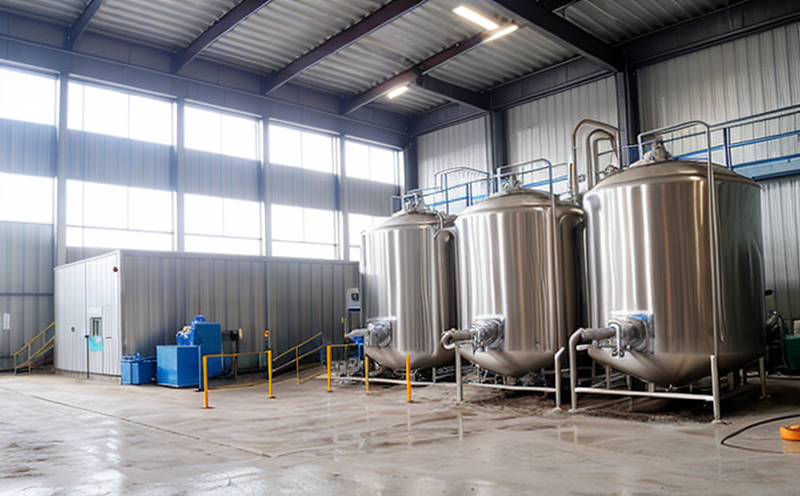ASTM D4012 Cyanide Test in Process Water
The ASTM D4012 standard method is a critical tool for quality managers, compliance officers, and R&D engineers working with industrial process water. This test ensures that cyanide levels remain within acceptable limits to protect both the environment and human health.
Cyanide can be toxic in even small amounts, leading to concerns about its presence in industrial effluents and discharge. The ASTM D4012 procedure is used to measure free cyanide concentrations, which are particularly important in process waters where cyanide might be a byproduct of certain chemical reactions or added as a component.
The test involves several steps, including sampling the water, preparing it for analysis, and then measuring the concentration of free cyanide using colorimetric methods. This method is sensitive enough to detect trace amounts of cyanide, which makes it particularly useful in industries where even small concentrations can have significant impacts.
Industries such as mining, metal finishing, and electroplating often use cyanide in their processes, making ASTM D4012 a crucial test for these sectors. By ensuring that cyanide levels are kept within safe limits, these industries not only comply with regulatory requirements but also protect the environment and public health.
The test is conducted using a spectrophotometer or colorimeter to measure the absorbance of light at specific wavelengths corresponding to free cyanide. The results provide a clear indication of whether the water meets the specified limits set by environmental regulations.
Understanding the process involves recognizing that the ASTM D4012 test is not just about compliance but also about safeguarding processes and personnel. For instance, in metal finishing operations, improper cyanide levels can affect the quality of the plating process or even pose risks to workers if concentrations are too high.
The procedure itself involves several key steps: sampling, preparation, measurement, and reporting. Sampling is critical as it determines the accuracy of the test results. Properly collecting a representative sample ensures that the analysis reflects the actual cyanide levels in the process water. Preparation includes diluting the sample if necessary to fit within the detection range of the spectrophotometer.
The measurement step uses reagents that react specifically with free cyanide, producing a color change whose intensity is proportional to the cyanide concentration. The absorbance at 628 nm (for sodium thiosulfate titration) or other specified wavelengths provides the data for calculation. Reporting involves documenting these results in a format that can be easily understood and acted upon by stakeholders.
The ASTM D4012 test is not just a compliance exercise; it’s part of a broader strategy to ensure environmental responsibility and worker safety. By regularly monitoring cyanide levels, industries demonstrate their commitment to sustainable practices and regulatory adherence.
Benefits
- Ensures compliance with environmental regulations
- Promotes safer industrial processes by reducing risks to workers
- Aids in maintaining the quality of water used in industrial operations
- Supports sustainability efforts by minimizing environmental impact
Industry Applications
| Industry | Cyanide Usage and Application | Purpose of Testing |
|---|---|---|
| Mining | Cyanide is used in leaching processes to extract precious metals. | Testing ensures that cyanide levels do not exceed permissible limits, protecting the environment and workers. |
| Metal Finishing | Cyanide is added as a reducing agent in electroplating baths. | Monitoring helps in maintaining process efficiency while ensuring worker safety. |
| Electroplating | Cyanide is used to stabilize the plating solution and improve adhesion. | The test ensures that cyanide levels are within safe limits, protecting both the environment and workers. |
Eurolab Advantages
Eurolab offers a comprehensive suite of services designed to meet the stringent requirements of ASTM D4012 and other international standards. Our experienced technicians use state-of-the-art equipment to ensure accurate and reliable results.
We provide rapid turnaround times, ensuring that you receive your test results promptly. This is crucial for industries where quick decision-making can have significant impacts on production schedules and environmental management plans.
Our laboratories are accredited to international standards, including ISO/IEC 17025, which guarantees the highest level of quality in our testing services. This accreditation ensures that you receive results that are trusted and accepted worldwide.
Moreover, Eurolab’s commitment to continuous improvement means we stay updated with the latest methodologies and technologies, ensuring that your tests are conducted using the most advanced techniques available.





